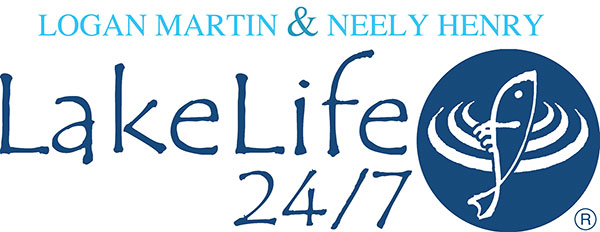Story by Danny K. Crownover
Submitted Photos
Through today’s lens, it seems improbable that a parson could start a war over whiskey, but legend – and history – has it that Parson and Reverend Gideon Blackburn came close to sparking a war between the United States and the Creek Indians in 1809.
In sharp contrast to most religious circles today, it was perfectly acceptable for a man of the cloth to dabble in distilling.
Blackburn, a Presbyterian minister of Maryville, Tennessee, started the first Presbyterian mission among the Cherokee in 1803 and was successful in his work among the Indians.
However, the good parson had another side to him besides preaching. He was a proprietor of a whiskey distillery.
In those days, distilling and selling was a respectable home industry, conducted by laymen and sometimes by clergymen. Common as it was among the white people, it was against federal law to sell it to the Native Americans.

Let’s set the stage and the location. Fifty-nine years earlier, around 1750, Chief Chinnaby brought his people from Mississippi to the Coosa River. They settled at the south bank of Big Wills Creek. Originally, they were Natchez Indians trying to escape from the decimating French. They became allied and integrated into the Chickasaws of this area, and this new town became known as Natchez Village.
The Chickasaws had already established a trade route with the British from Charleston, S. C. through now Gadsden to near Memphis, Tennessee, called the High Town Path. The Chickasaws and English established posts along this route, including one that eventually became Turkeytown.
On the north side of Big Wills Creek was Cherokee land and a small village called Frogtown. It ran from the Coosa River to Black Creek and beyond. Frogtown was named for Cherokee Spring Frog who lived there, according to the Cherokee Phoenix, a Cherokee newspaper printed in both Cherokee and English.
This is the same Spring Frog, born in 1754 at Chickamaugua Creek near Chattanooga, Tennesse, who died July 31, 1859, in Oklahoma. Spring Frog was the grandson of the Raven of Chota, making him the last line of the Great Chiefs of Chota.
Spring Frog lived on the most southernmost border of the Cherokee Nation known as Turkey Town (sometimes known as Little Turkey’s Town, Sennecca, or Esenaca) near today’s Turkey Town in Etowah County. It was ruled by Principal Chief Pathkiller.
The 1809 incident all started when Blackburn was descending the Coosa River with two flatboats of 2,226 gallons (or 65 casks) of whiskey and other supplies when he arrived at Chief Pathkiller’s home.
Pathkiller informed Blackburn that there was a large camp of Creek Indians downstream at the Ten Islands and thought that if he went there, the Creeks would take his whiskey from him.
Upon hearing this news, Blackburn determined he would not go down the river any further. He had Pathkiller temporarily store his whiskey in one of the chief’s houses, where it could be locked up. Pathkiller and Blackburn then went home.
After Blackburn was gone, the Creeks, led by Chief Big Warrior, heard of the whiskey. They demanded Pathkiller hand it over and threatened to break down the door if he would not open it. Pathkiller was compelled to hand over his key, and upwards of 100 Creek Indians took Blackburn’s whiskey.

Two young men had been left to guard the house, but the Creeks broke open the door, rolled out three or four barrels, broke in the heads and commenced drinking. They filled two bottles and gave them to the young men and told them to leave as soon as possible or the Creeks would kill them when they got drunk.
The young men watched for some time at a great distance. The Creeks killed and butchered each other with knives and clubs and crowded around the house. They were all drunk. Somehow, the building caught fire and the whiskey exploded like a powder magazine.
Everyone in and near were killed, with many burned up. How much whiskey was destroyed was never ascertained, as Pathkiller’s land was located some 120 miles from a white settlement.
According to Blackburn’s brother Samuel, they had unloaded the cargo simply to await permission from the Creeks to sail on down the river to Mobile. There, they planned to dispose of the whiskey, powder and lead.
The Creeks, who seized what was left of Blackburn’s cargo were already disputing with the U.S. government about the right of trading parties crossing Creek territory.
The Cherokees were against the Creeks for sending 100 warriors into the Cherokee Nation to seize the cargo and the boats.
The Creeks claimed the cargo was left with the PathKiller “to sell the goods for the benefit of the owner,” so the Creeks had confiscated Blackburn’s whiskey on the grounds it was being illegally sold en route.
When the Cherokees were called upon for compensation, they excused themselves and said the Creeks owned the land beyond Wills Creek and could do as they pleased in their own country.
Because it was illegal for any white person to sell alcoholic beverages to the Indians within their territory, Chief Big Warrior felt justified in seizing this illegal cargo.
Many heated correspondences were made among the Creeks, the Indian agents and the United States, but nothing resulted from these communications.
Soon, but for other reasons, the U.S. did come to war with the Creek Indians during the Creek War of 1813.
But just four years earlier, Parson Blackburn came close to starting an actual war between the United States and the Creek Indians – over whiskey.














